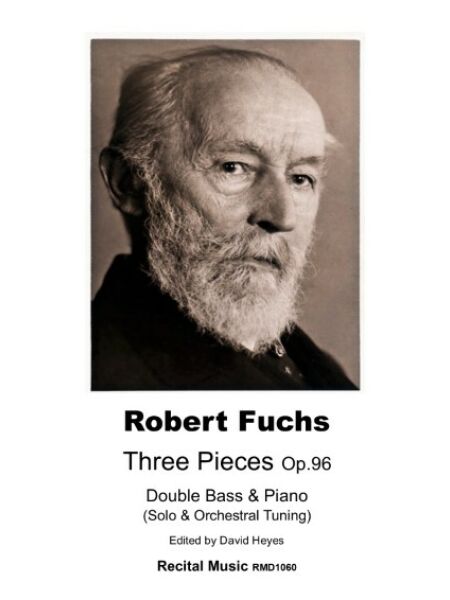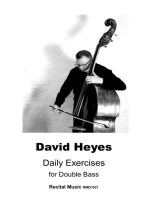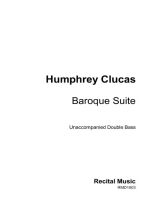Three Pieces Op.96

Product code:
£10.00
Description
Three Pieces for double bass and piano Op.96 by Robert Fuchs was composed in 1912 and was first published in Vienna the following year by Adolf Robitschek. The suite was written for Karl Schreinzer (1884-1960) who was a bassist with the Wiener Staatsopernorchester and Wiener Philharmoniker and also Professor of Double Bass at the Vienna Music Academy from 1938-50.
The three contrasting pieces are primarily in the orchestral register of the double bass, written in an accessible late-romantic style, with confident and independent accompaniments which create a work of great quality and beauty. Robert Fuchs was a composer who certainly knew his craft and his two compositions for double bass (Three Pieces Op.96 / Sonata Op.97) are worthy of revival in the 21st-century.
The tessitura of the double bass part is generally low and some passages may benefit from being played an octave higher than written. This would open out the textures, contrasting the bright and breezy accompaniment, and each player should decide for themselves.
Originally in orchestral tuning only, this new edition includes accompaniments for both solo and orchestral tuning.
Description
Three Pieces for double bass and piano Op.96 by Robert Fuchs was composed in 1912 and was first published in Vienna the following year by Adolf Robitschek. The suite was written for Karl Schreinzer (1884-1960) who was a bassist with the Wiener Staatsopernorchester and Wiener Philharmoniker and also Professor of Double Bass at the Vienna Music Academy from 1938-50.
The three contrasting pieces are primarily in the orchestral register of the double bass, written in an accessible late-romantic style, with confident and independent accompaniments which create a work of great quality and beauty. Robert Fuchs was a composer who certainly knew his craft and his two compositions for double bass (Three Pieces Op.96 / Sonata Op.97) are worthy of revival in the 21st-century.
The tessitura of the double bass part is generally low and some passages may benefit from being played an octave higher than written. This would open out the textures, contrasting the bright and breezy accompaniment, and each player should decide for themselves.
Originally in orchestral tuning only, this new edition includes accompaniments for both solo and orchestral tuning.



